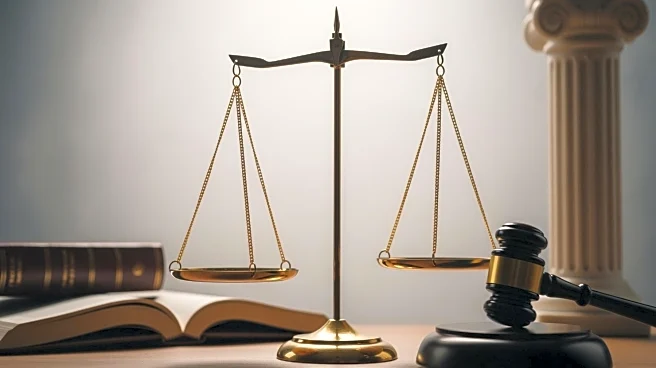What's Happening?
Former FBI Director James Comey has requested a federal judge to dismiss the criminal case against him, arguing that the prosecution is vindictive and selective. Comey is facing charges of lying to Congress and obstruction of justice related to the FBI's
investigation into alleged collusion between President Trump's 2016 campaign and Russian officials. Comey's legal team claims that the charges are driven by President Trump's personal animus towards him, citing Trump's public statements and social media posts as evidence. The motion also challenges the appointment of U.S. Attorney Lindsey Halligan, alleging it was unlawful.
Why It's Important?
The case against Comey highlights ongoing tensions between former government officials and the Trump administration. If Comey's motion is successful, it could set a precedent for challenging prosecutions perceived as politically motivated. The outcome may impact public trust in the justice system and influence future legal actions against political figures. Additionally, the case underscores the complexities of legal appointments and the potential for political influence in judicial processes.
What's Next?
A hearing on Comey's motion is scheduled for November 19 in Alexandria, Virginia. The court will consider the arguments regarding vindictive prosecution and the legality of Halligan's appointment. Depending on the outcome, Comey could face trial or have the charges dismissed. The case may prompt further scrutiny of the Justice Department's actions and lead to additional legal challenges from other political figures.
Beyond the Headlines
The case raises questions about the ethical implications of prosecuting former government officials based on political motivations. It also highlights the potential for abuse of power in appointing legal officials without proper oversight. The situation may lead to discussions about reforming the appointment process to ensure impartiality and fairness in legal proceedings.














